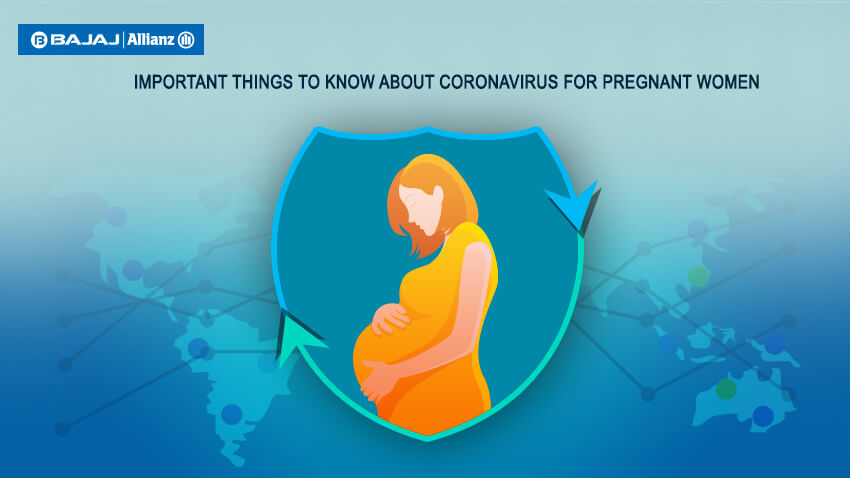In times when healthcare woes loom large in the public, pregnant women are feeling disconcerted about their well-being.
With more Coronavirus patients pouring into hospitals each day, the situation will become challenging for just anyone who requires medical attention.
This is especially true for pregnant women who have months of clinical visits scheduled ahead of them. Managing their
personal hygiene while ensuring prenatal health, can put them in an anxious position.
In order to steer safe from the harm’s way, we have addressed the top concerns faced by pregnant women in these times. What are the chances of contamination, hospital safety tips, and is a
health insurance policy required? Feel free to read up on everything one by one.
Susceptibility to the Virus in Pregnancy
While in pregnancy, bodily processes undergo a number of transformations. This can impact the levels of immunity and the shield that the body has, against Coronavirus contamination.
Therefore it is advised to cut down on the planned clinical and sonography visits and prioritize only the necessary ones. Pregnant women are not naturally more susceptible to the virus, but as they come in contact with the clinical environment often, the risk is always there.
It has been found that the dosage of contamination is proportional to the severity of the case. Hence, the best way to avoid any chest infection is to stay far from the epicenters of the virus.
Covid-19 Symptoms for Pregnant Women
Pregnant women are mostly found to develop moderate symptoms in cases of contamination. Some of them are mentioned below.
- Common Cold or Flu-like cough
- Shortness of breath
- Headache
- Loss of sense of smell
- Mild fever
In case any of the above symptoms arise in severity, it’s critical to receive medical attention at the earliest. It’s important to note that the physiological response to contamination can vary in degree and manner for different individuals.
Contamination Transfer to the Baby
Multiple studies enlisted by Harvard have highlighted that pregnant women who had Covid-19 didn’t pass it to their babies. This is because the virus doesn’t travel through the blood of the mother to the baby’s body.
Therefore, concerns regarding the baby’s health have met with a sigh of relief in most cases. Only a very few cases have seen the baby contracting the virus from the mother. In such cases, the possibility of post-birth of contamination is also considered.
Many pregnant women are considering
health insurance for Coronavirus before going into delivery.
Baby’s Health Concerns For Covid-19 Positive Cases
A study by ACOG found that a small percentage of Covid-19 positive mothers observed a preterm birth, however, there isn’t enough data for a correlation to be built.
Some complications have been reported but in very scarce numbers. Most births took place properly and didn’t face many issues. In any case, mothers are advised to consult their obstetricians and doctors for a better understanding of their case.
Precautions for the Delivery Day
The fear of chance contamination on the delivery day will continue to feel like a sword hanging over the head. But with all the precautions taken, successful delivery is easily possible.
Following are a few precautions that can be taken:
- Make sure that newborns and pregnant women are isolated from Covid-19 wards strictly.
- Face masks, sanitizers and PPE kits must be availed to pregnant women for all prenatal visits and the delivery day.
- Reducing the time for the delivery procedure can help.
- Avoid any family gatherings around the delivery ward and OT.
- Earnest efforts must be taken while transporting the baby to the home.
- Get health insurance in the need is felt.
Breastfeeding the Baby
Breastfeeding the baby hasn’t been identified as one of the channels of contamination. Therefore, it’s safe to breastfeed the baby, but the necessary precautions must be taken.
It’s important to remember that the baby can still catch the virus via airborne droplets, sneezing, or coughing too close. All such scenarios must be avoided to make sure, the baby is safe from infection.
Getting Health Insurance
Despite the safety measures, a pregnant woman may feel increased levels of stress and impatience regarding the public health crisis. In such scenarios, and generally, for better assurance, health insurance plans that offer coverage for maternity expenses can come handy.
Family health insurance is a practical alternative under such situations.
There is always the added security of claiming funds for treatment if things go downhill. It acts as a feel-good factor for women dealing with delivery stress or doubts regarding the newborn’s health.
Conclusion
With greater clarity on how the virus affects pregnant women and the chances of transfer to the baby’s body, you can manage the pregnancy with greater confidence. The most popular way is to take the precautions at all times, pre and post-birth, to avoid unwanted consequences.
Getting insured against Coronavirus treatment with coronavirus health insurance alongside taking the precautions, is another way to feel reassured in pregnancy.
 Service Chat:
Service Chat: 

